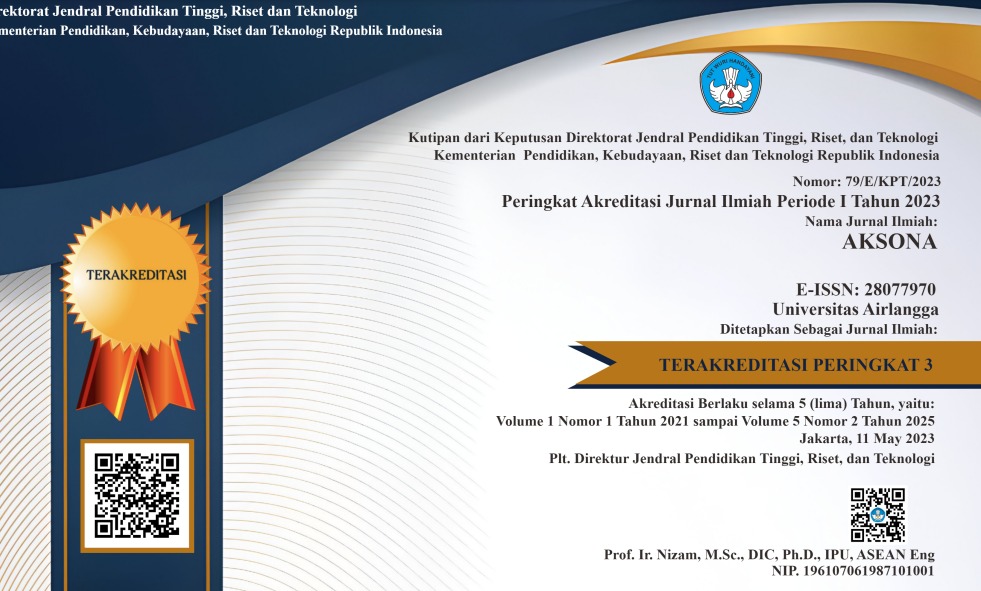Blood Pressure in Patients Obstructive Sleep Apnea and Resistant Hypertension with Continuous Positive Airway Pressure (CPAP) Therapy: A Systematic Review and Meta-Analysis
Downloads
Highlight:
- CPAP therapy is a medical treatment for individuals suffering from OSA, a condition that is frequently linked to cardiovascular disease and resistant hypertension.
- Five studies clearly showed that combining CPAP therapy with standard medications had a big effect on the blood pressure of patients with both obstructive sleep apnea (OSA) and resistant hypertension.
- Administering CPAP in conjunction with standard treatment, as per guidelines, has demonstrated the capability to lower both daytime and nighttime blood pressure in individuals affected by OSA and resistant hypertension.
ABSTRACT
Introduction: Obstructive sleep apnea (OSA) is an upper respiratory tract disorder that is often associated with cardiovascular diseases, one of which is resistant hypertension (RH). On the other side, Continuous Positive Airway Pressure (CPAP) is a medical treatment that is often used for patients with OSA and RH. Objective: This meta-analysis aimed to determine the effectiveness of CPAP in patients with OSA and resistant hypertension by measuring systolic and diastolic blood pressure at diurnal, nocturnal, and 24 hours. Methods: We conducted a systematic review using a PRISMA flowchart, utilizing sources such as PubMed, Scopus, Science Direct, and ClinicalTrials.gov with MeSH. We then reviewed these sources for quality studies using RoB2, and analyzed the data using the Revman website version. 5.4.Results: The five studies included in the analysis found that CPAP, while maintaining conventional drugs, significantly affected the blood pressure of patients with OSA and RH. The significant results were made clearer by obtaining data for nocturnal SBP pressure, mean -3.89 mmHg (95% CI: -7.03 to -0.76) with a p-value < 0.02, and then nocturnal DBP obtained a mean of -2.34 mmHg (95% CI: -4.70 to 0.02) with a p-value < 0.05. Meanwhile, the 24-hour results for SBP obtained a mean of -2.97 mmHg (95% CI: -5.88 to -0.06) with a p-value < 0.05, and the 24-hour results for DBP obtained a mean of -2.39 mmHg (95% CI: -4.62 to -0.16) with a p-value < 0.04. Conclusion: CPAP, while maintaining conventional treatment according to indications, can reduce 24-hour and nocturnal blood pressure in patients with OSA and resistant hypertension.
Baran R, Grimm D, Infanger M, Wehland M. The effect of continuous positive airway pressure therapy on obstructive sleep apnea-related hypertension. Int J Mol Sci. 2021; 22(5):1–14. doi: 10.3390/ijms22052300
Salman LA, Shulman R, Cohen JB. Obstructive Sleep Apnea, Hypertension, and Cardiovascular Risk: Epidemiology, Pathophysiology, and Management. Curr Cardiol Rep. 2020; 22(2). doi: 10.1007/s11886-020-1257-y
Jehan S, Zizi F, Pandi-Perumal SR, Mcfarlane SI, Jean-Louis G, Myers AK. Obstructive sleep apnea, hypertension, resistant hypertension and cardiovascular disease HHS Public Access. Sleep Med Disord. 2020; 4(3):67–76. [Journal]
Carnethon MR, Johnson DA. Sleep and Resistant Hypertension. Curr Hypertens Rep. 2019; 21(5). doi: 10.1007/s11906-019-0941-z
Ahmad M, Makati D, Akbar S. Review of and Updates on Hypertension in Obstructive Sleep Apnea. Int J Hypertens. 2017; 2017:1848375. doi: 10.1155/2017/1848375
Marcus JA, Pothineni A, Marcus CZ, Bisognano JD. The role of obesity and obstructive sleep apnea in the pathogenesis and treatment of resistant hypertension. Curr Hypertens Rep. 2014; 16(1):411. doi: 10.1007/s11906-013-0411-y
Sapiña E, Torres G, Barbé F, Sánchez-de-la-Torre M. The Use of Precision Medicine to Manage Obstructive Sleep Apnea Treatment in Patients with Resistant Hypertension: Current Evidence and Future Directions. Curr Hypertens Rep. 2018; 20(7):60. doi: 10.1007/s11906-018-0853-3
Indrayana Y, Lestari R, Herpan S. Hubungan Tingkat Risiko Obstructive Sleep Apnea dan Sindroma Metabolik dengan Fungsi Kognitif Global The. J Kedokt Brawijaya. 2018;30(2):133–7. doi: 10.21776/ub.jkb.2018.030.02.10
Aboussouan S L, Bhat A, Coy T, Kominsky A. Treatments for obstructive sleep apnea: CPAP and beyond. Cleveland Clinic Journal of Medicine. 2023; 90(12):pp.755–765. doi: 10.3949/ccjm.90a.23032
Hou H, Zhao Y, Yu W, Dong H, Xue X, Ding J, et al. Association of obstructive sleep apnea with hypertension: A systematic review and meta-analysis. J Glob Health. 2018; 8(1):1–10. doi: 10.7189/jogh.08.010405
Lloberes P, Sampol G, Espinel E, Segarra A, Ramon MA, Romero O, et al. A randomized controlled study of CPAP effect on plasma aldosterone concentration in patients with resistant hypertension and obstructive sleep apnea. J Hypertens. 2014; 32(8):1650–7. doi: 10.1097/HJH.0000000000000238
Muxfeldt ES, Margallo V, Costa LMS, Guimarães G, Cavalcante AH, Azevedo JCM, et al. Effects of continuous positive airway pressure treatment on clinic and ambulatory blood pressures in patients with obstructive sleep apnea and resistant hypertension: a randomized controlled trial. Hypertens (Dallas, Tex 1979). 2015; 65(4):736–42. doi: 10.1161/HYPERTENSIONAHA.114.04852
Javaheri S, Martinez-Garcia M, Campos-Rodriguez F, Muriel A, Peker Y. CPAP adherence for prevention of major adverse cerebrovascular and cardiovascular events in obstructive sleep apnea. Am J Respir Crit Care Med. 2019;1–12. doi: 10.1164/rccm.201908-1593LE
Kaewkes C, Sawanyawisuth K, Sawunyavisuth B. Are symptoms of obstructive sleep apnoea related to good continuous positive airway pressure compliance. ERJ Open Research. 2020;6(3):00169–02019. doi: 10.1183/23120541.00169-2019
Lei Q, Lv Y, Li K, Ma L, Du G, Xiang Y, et al. Effects of continuous positive airway pressure on blood pressure in patients with resistant hypertension and obstructive sleep apnea: a systematic review and meta-analysis of six randomized controlled trials. J Bras Pneumol publicacao Of da Soc Bras Pneumol e Tisilogia. 2017; 43(5):373–9. doi: 10.1590/S1806-37562016000000190
Ulander M, Johansson MS, Ewaldh AE, Svanborg E, Broström A. Side effects to continuous positive airway pressure treatment for obstructive sleep apnoea: Changes over time and association to adherence. Sleep Breath. 2014; 18(4):799–807. doi: 10.1007/s11325-014-0945-5
Ghadiri M, Grunstein RR. Clinical side effects of continuous positive airway pressure in patients with obstructive sleep apnoea. Respirology. 2020;25(6):593–602. doi: 10.1111/resp.13808
Rotty MC, Suehs CM, Mallet JP, Martinez C, Borel JC, Rabec C, et al. Mask side-effects in long-term CPAP-patients impact adherence and sleepiness: the InterfaceVent real-life study. Respir Res. 2021; 22(1):1–13. doi: 10.1186/s12931-021-01618-x
Tirtasari, Silviana, Kodim, Nasrin. Prevalensi dan Karakteristik Hipertensi Pada Usia Dewasa Muda di Indonesia. Tarumanagara Med J. 2019;1(2):395–402. [Journal]
Astridivia M, Kuntarti. Association of Obstructive Sleep apnea and blood pressure on hypertensive patient in Depok Indonesia. LIFE: International Journal of Health and Life-Sciences. 2017; 3(2):106–117. doi: 10.20319/lijhls.2017.32.106117
Copyright (c) 2024 Mutiara Rizqia Rivania, Budi Sustyo Pikir, Pudji Lestari, Wardah Rahmatul Islamiyah

This work is licensed under a Creative Commons Attribution-ShareAlike 4.0 International License.





















